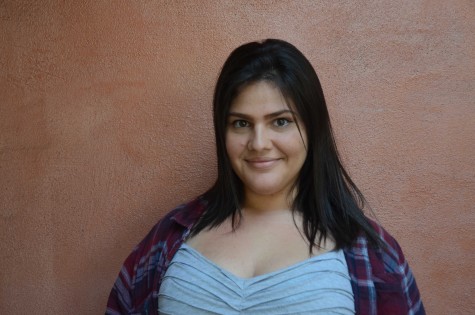That’s a Wrap: The sexist secret of the Oscars

Flickr
The Oscars, formerly known as the Academy Awards, rank as the most prestigious film and production awards. The Academy’s history of sexism and racism, however, diverts many talented college-aged female and minority actors and producers from pursuing careers in film.
February 16, 2016
It’s a fact about being in high school: drama is considered a “girly” pursuit. Boys are sometimes shamed for participating in the activity. Girls fight over lead roles, due to the huge population of females auditioning.
As a high schooler, I was convinced, through my experience in the Harker Conservatory, that I would be surrounded by females as I pursued my career in the Cinematic Arts.
I could not have been more wrong.
The fact about being a female director: you get used to being the only one.
According Center for the Study of Women in Television and Film, only 7 percent of directors and only 5 percent of cinematographers working on the top 250 films of 2014 were females.
These low numbers provide stark contrast to the much higher percentages of female students studying film and television production in top universities for film. For instance, at New York University’s Kanbar Institute for Film, Television, and Video Production at Tisch, 43% of students are female.
The dirty truth is that women are too often discouraged from pursuing careers in major creative roles behind the scenes.
One huge factor that could play a role in a woman’s decision to deviate from narrative filmmaking and pursue other fields, such as documentary filmmaking, is the attitude that filmmakers and film critics have towards the Academy Awards, popularly known as the Oscars.
The Academy Awards are typically considered the most prestigious film awards. The issue arises when the award winners only represent one demographic, and the other demographics are ignored.
So I shouldn’t have been surprised to discover that, once again, not a single woman had been nominated for Best Director by the Academy when it published its nominees on Jan. 15. This year’s Academy Award nomination pool? Exclusively white actors.
In the 88 years of the Academy Awards’s reign over the film industry, only four women have been nominated for Best Director and only one has taken home the award.
Viola Davis made history in 2015 for being the first African-American to bring home the Emmy for Best Actress in a Drama. This should not be history. People of color should be given the same regard as white people, but instead, it took 67 years for a African-American person to claim the title.
The internet has exploded in outrage over the recent announcements, with hashtags such as #OscarsSoWhite trending for the second year in a row and people calling for a boycott of the annual live show.
The Academy Awards made one statement very clear: the film industry is for men and white people.
Women and people of color? Nice try, better luck next year.
Some argue that women are simply not delivering, that the movies women make are not to par with the industry’s standards.
Women directed six out of the 14 Sundance film festival dramatic features, such as Kris Swanberg’s Unexpected, which took home the Grand Jury Prize. Not even these six women were deemed worthy of a nomination.
With women elsewhere in film receiving more recognition, it becomes clear that women simply aren’t being looked at with the same weight as men in the field.
And low chances of nomination lead to fewer women believing that it is realistic to pursue a career as a director. Thus, fewer women make feature length narrative films, and fewer women are eligible for nominations. Lather, rinse, repeat.



















![“[Building nerf blasters] became this outlet of creativity for me that hasn't been matched by anything else. The process [of] making a build complete to your desire is such a painstakingly difficult process, but I've had to learn from [the skills needed from] soldering to proper painting. There's so many different options for everything, if you think about it, it exists. The best part is [that] if it doesn't exist, you can build it yourself," Ishaan Parate said.](https://harkeraquila.com/wp-content/uploads/2022/08/DSC_8149-900x604.jpg)




![“When I came into high school, I was ready to be a follower. But DECA was a game changer for me. It helped me overcome my fear of public speaking, and it's played such a major role in who I've become today. To be able to successfully lead a chapter of 150 students, an officer team and be one of the upperclassmen I once really admired is something I'm [really] proud of,” Anvitha Tummala ('21) said.](https://harkeraquila.com/wp-content/uploads/2021/07/Screen-Shot-2021-07-25-at-9.50.05-AM-900x594.png)







![“I think getting up in the morning and having a sense of purpose [is exciting]. I think without a certain amount of drive, life is kind of obsolete and mundane, and I think having that every single day is what makes each day unique and kind of makes life exciting,” Neymika Jain (12) said.](https://harkeraquila.com/wp-content/uploads/2017/06/Screen-Shot-2017-06-03-at-4.54.16-PM.png)








![“My slogan is ‘slow feet, don’t eat, and I’m hungry.’ You need to run fast to get where you are–you aren't going to get those championships if you aren't fast,” Angel Cervantes (12) said. “I want to do well in school on my tests and in track and win championships for my team. I live by that, [and] I can do that anywhere: in the classroom or on the field.”](https://harkeraquila.com/wp-content/uploads/2018/06/DSC5146-900x601.jpg)
![“[Volleyball has] taught me how to fall correctly, and another thing it taught is that you don’t have to be the best at something to be good at it. If you just hit the ball in a smart way, then it still scores points and you’re good at it. You could be a background player and still make a much bigger impact on the team than you would think,” Anya Gert (’20) said.](https://harkeraquila.com/wp-content/uploads/2020/06/AnnaGert_JinTuan_HoHPhotoEdited-600x900.jpeg)

![“I'm not nearly there yet, but [my confidence has] definitely been getting better since I was pretty shy and timid coming into Harker my freshman year. I know that there's a lot of people that are really confident in what they do, and I really admire them. Everyone's so driven and that has really pushed me to kind of try to find my own place in high school and be more confident,” Alyssa Huang (’20) said.](https://harkeraquila.com/wp-content/uploads/2020/06/AlyssaHuang_EmilyChen_HoHPhoto-900x749.jpeg)









